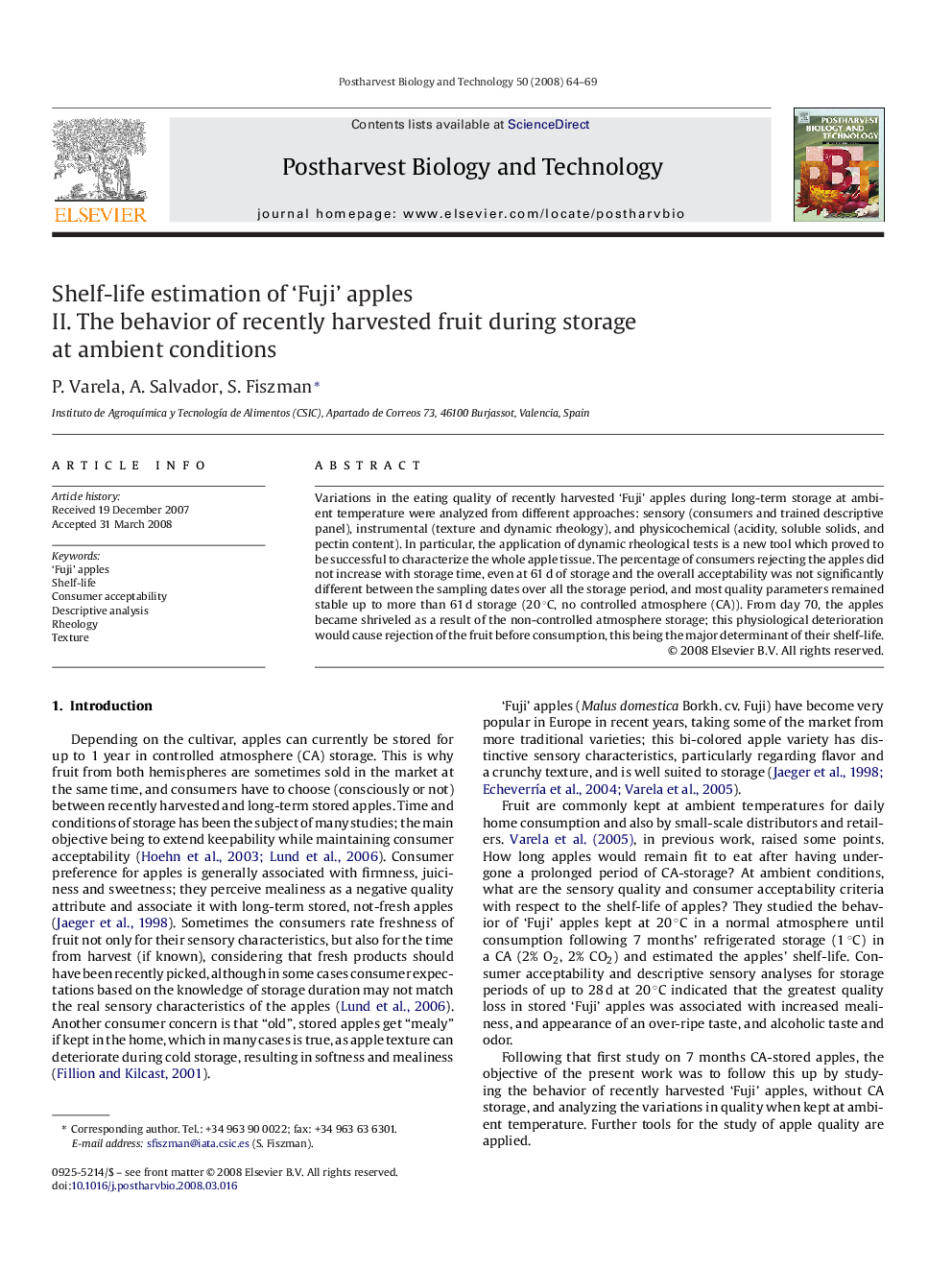| Article ID | Journal | Published Year | Pages | File Type |
|---|---|---|---|---|
| 4519399 | Postharvest Biology and Technology | 2008 | 6 Pages |
Variations in the eating quality of recently harvested ‘Fuji’ apples during long-term storage at ambient temperature were analyzed from different approaches: sensory (consumers and trained descriptive panel), instrumental (texture and dynamic rheology), and physicochemical (acidity, soluble solids, and pectin content). In particular, the application of dynamic rheological tests is a new tool which proved to be successful to characterize the whole apple tissue. The percentage of consumers rejecting the apples did not increase with storage time, even at 61 d of storage and the overall acceptability was not significantly different between the sampling dates over all the storage period, and most quality parameters remained stable up to more than 61 d storage (20 °C, no controlled atmosphere (CA)). From day 70, the apples became shriveled as a result of the non-controlled atmosphere storage; this physiological deterioration would cause rejection of the fruit before consumption, this being the major determinant of their shelf-life.
